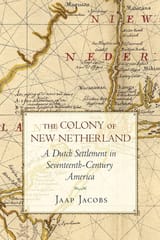That's a fantastic and insightful question. Your memory of Charles McLean Andrews is spot-on—he was a towering figure in the field of early American history and a long-time professor at Yale. His work, particularly his four-volume magnum opus "The Colonial Period of American History" (1934–1938), was foundational for the "Imperial School" of American history, which focused on the administrative and political ties between the colonies and Great Britain.
While Andrews's work remains a classic, its focus on the British imperial framework means it's less a deep dive into the specifics of Dutch trading in the 1620s and more of a grand, overarching narrative of the English colonies. A Yale professor teaching a specialized course on this period today would use Andrews's work for its intellectual and historiographical importance—to show how the field has evolved—but would rely on more recent scholarship for a nuanced understanding of the Dutch presence.
silly cunt
